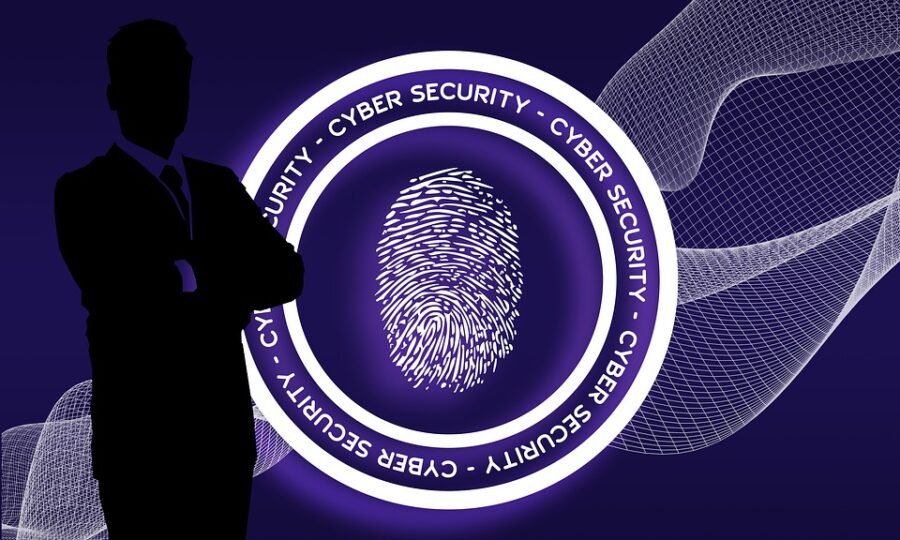Cybersecurity is important all year long. During October, the nation celebrates cybersecurity awareness month to help ensure everyone is taking all the necessary steps. These 29 tips are a great place to start!
Disclosure: This post may contain affiliate links, which means we may receive a commission if you click a link and purchase something we have recommended. This commission comes at no additional cost to you but will help us keep this site up and running and ad-free! Thank you for all the support. You’re under no obligation to purchase anything and should only do so if the product will suit your needs. You can read our full privacy policy here.
Develop a disaster recovery plan
If disaster strikes, how will you access needed information and information services for your family or small business? Are you able to get what you need from an offsite location?
Protecting your Computer
- Ensure your Operating System’s Firewall is turned on.
- Install, update and run Malware Bytes or another trusted malware removal tool.
- This will ensure your computer and data are safe in case anything gets through the firewall.
Software and computer maintenance
- Install, update and run (at least weekly) anti-virus software. There are many free versions available. Check to be sure they work with your operating system before installing.
- Install and enable the auto-update features in your operating system. By enabling the software to auto-update, you ensure you’ll always have the latest firewall and other protections.
- Install, and update all third-party software.
- This includes things like Adobe, Chrome, etc. Updates often include debugging as well as plugging any potential security holes, so it’s essential to keep them up-to-date.

Practical Steps for Protecting Cybersecurity
- Shut down your computer if you are not using it for more than a day.
- This saves energy and reduces your vulnerability to attack.
- Always create a backup of your important information.
- If using a local device, disconnect it after backing up your data. Cloud backups are generally inexpensive, but be sure to use a trusted site such as Google Drive.
Protecting Your Mobile Devices
- Install and update Mobile Device Antivirus Security software for your smartphone.
- Before installing an app on your mobile device, consider whether it’s reasonable for the application to have access to the personal information it’s requesting.
- Many of these apps request access to your photos, GPS, storage, contacts, etc.
- Use a password (or biometric) for your mobile device to secure it from unauthorized access.
Also, set up your emergency contact list. That way, EMS and similar personnel can contact your loved ones if necessary without having access to the rest of your phone.

Protecting Your Data While Online
- Always use a Virtual Private Network (VPN) when connecting to an untrusted network.
- This includes open and public networks in that coffee shop you always work at.
- Use a strong password
- If you can, also activate multi-factor authentication, even for accounts that seem less sensitive. A strong password is at least 16 characters and includes upper and lower case, several special characters, and numbers. Every account should have its own unique password.
- Use a password manager to manage your passwords.
- We recommend and use Lastpass premium. There are other password managers to choose from. Do your homework and find one that fits your particular needs.
- Do not open any attachments or click on any links in an email unless you are expecting them.
- Even if they’re expected, verify with the sender. Links can have malware hidden in them.
Cybersecurity and personal information
- To respond to an email you’re unsure about, click “forward” NOT “REPLY” and type in the recipient’s name.
- Forwarding emails to the address you have on file ensures you aren’t dealing with a hacked or fake account.
- No reputable institution will ever ask you for your personal information in an email.
- If you get an email asking for your password, username, social security number, or credit card number, delete it.
- Be wary of ANY email that stresses a sense of urgency, even if you think you know the sender.
- They are trying to get you to react quickly without thinking.

Internet Safety Precautions
- Do not install random software from the Internet
- Free often equates to malware.
- Don’t operate your computer as an Administrator
- Run as a normal user with non-administrative privileges. It is much easier for malware to do harm when you use your computer as an Administrator.
- Set up a separate email account for personal use.
- Things like dating sites, mailing lists, coupons, etc. should never be on your work email, even if you’re self-employed.
- Add family, friends, and work contacts to your phone contacts list.
- Do not answer any other robocalls from unfamiliar numbers.
- Minimize tracking by blocking third-party cookies in your browser.
Protecting Your Data from Cybersecurity Risks
- Check your bank and investment statements, credit card statements, and health EOB statements every month.
- Do a privacy check-up for your social media accounts.
- Encrypt your devices by using a password.
- Do not share the encryption key with anyone.
- Carefully dispose of used hard drives and computers.
- Securely wipe the drive or physically destroy it.
- Encrypt USB drives and securely wipe the drive when done.
- Use a separate device for your financial business.
- Bill pay, purchasing items online, etc. Use a different device for casual browsing and other online entertainment if possible.
For more tips on being cyber safe any time of year, visit the National Cybersecurity Alliance.
👉 Want More Expert Tips? Subscribe to our bi-weekly newsletter for the latest updates, insights, and valuable resources tailored just for you. Subscribe Now!









